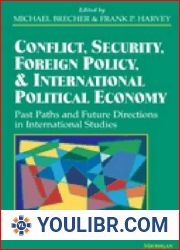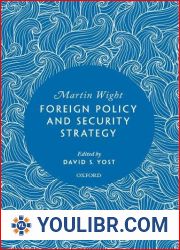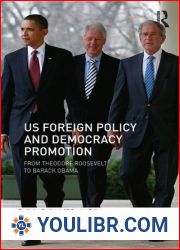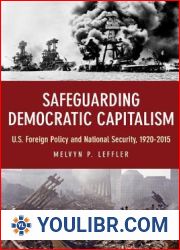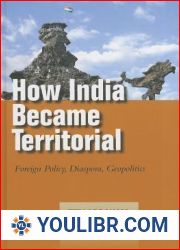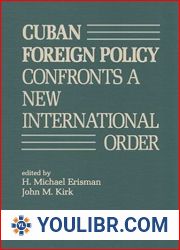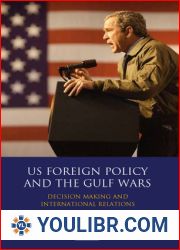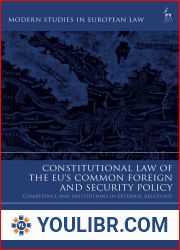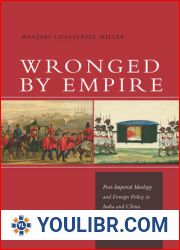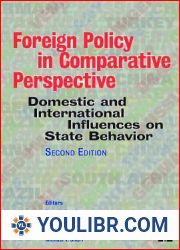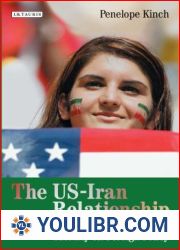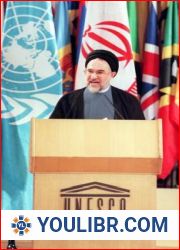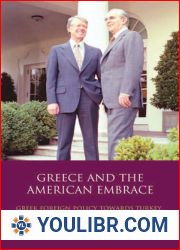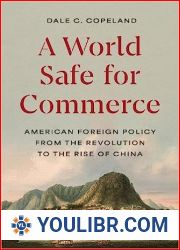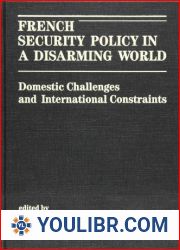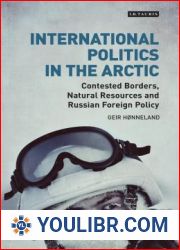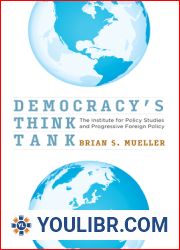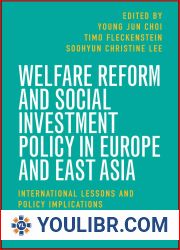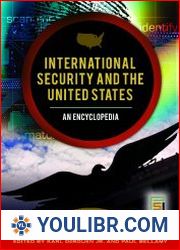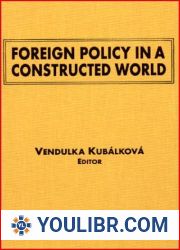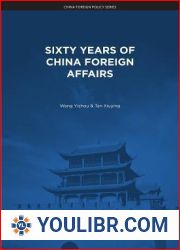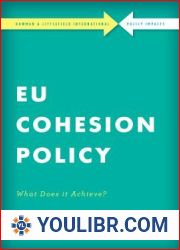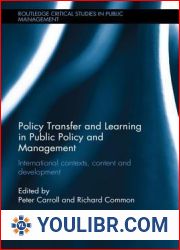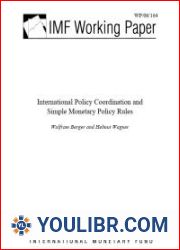
BOOKS - Conflict, Security, Foreign Policy, and International Political Economy: Past...

Conflict, Security, Foreign Policy, and International Political Economy: Past Paths and Future Directions in International Studies (Millennial reflections on international studies)
Author: Michael Brecher
Year: August 14, 2002
Format: PDF
File size: PDF 1.9 MB
Language: English
Year: August 14, 2002
Format: PDF
File size: PDF 1.9 MB
Language: English
The plot of the book "Conflict Security Foreign Policy and International Political Economy: Past Paths and Future Directions in International Studies" revolves around the need to understand the evolution of technology and its impact on international relations, foreign policy, and global security. The book is edited by Frank P. Harvey and Michael Brecher, two renowned scholars in the field of political science and international studies. It comprises twelve original essays that critically examine the current approaches in these research areas and propose future research agendas. The book begins by highlighting the importance of studying the interplay between technology, foreign policy, and international security. The authors argue that the rapid pace of technological advancements has created new challenges and opportunities for states and international organizations, making it essential to comprehend the process of technological evolution and its implications for global politics. They emphasize the need to develop a personal paradigm for understanding the technological process of developing modern knowledge as the basis for human survival and the unification of warring states. The first section of the book focuses on the evolution of conflict and security in international relations. The authors explore how traditional notions of state sovereignty and national security have been challenged by the emergence of non-state actors, such as terrorist groups and transnational criminal networks. They also examine the role of technology in shaping the nature of conflicts, from conventional wars to cyber attacks and information wars. In the second section, the book delves into the realm of foreign policy and international political economy.
Сюжет книги «Внешняя политика и международная политическая экономия в области безопасности конфликтов: прошлые пути и будущие направления в международных исследованиях» вращается вокруг необходимости понять эволюцию технологии и ее влияние на международные отношения, внешнюю политику и глобальную безопасность. Книга редактируется Фрэнком П. Харви и Майклом Бречером, двумя известными учеными в области политологии и международных исследований. Он включает в себя двенадцать оригинальных эссе, в которых критически рассматриваются текущие подходы в этих областях исследований и предлагаются будущие программы исследований. Книга начинается с того, что подчеркивается важность изучения взаимодействия технологий, внешней политики и международной безопасности. Авторы утверждают, что быстрые темпы технологического прогресса создали новые вызовы и возможности для государств и международных организаций, что делает необходимым понимание процесса технологической эволюции и его последствий для глобальной политики. Они подчеркивают необходимость выработки личностной парадигмы понимания технологического процесса развития современных знаний как основы выживания человека и объединения враждующих государств. Первый раздел книги посвящен эволюции конфликта и безопасности в международных отношениях. Авторы исследуют, как традиционные представления о государственном суверенитете и национальной безопасности были оспорены появлением негосударственных субъектов, таких как террористические группы и транснациональные преступные сети. Они также изучают роль технологий в формировании характера конфликтов, от обычных войн до кибератак и информационных войн. Во втором разделе книга углубляется в область внешней политики и международной политической экономии.
Die Handlung des Buches „Außenpolitik und internationale politische Ökonomie im Bereich der Konfliktsicherheit: Vergangene Wege und zukünftige Richtungen in der internationalen Forschung“ dreht sich um die Notwendigkeit, die Entwicklung der Technologie und ihre Auswirkungen auf die internationalen Beziehungen, die Außenpolitik und die globale cherheit zu verstehen. Herausgegeben wird das Buch von Frank P. Harvey und Michael Brecher, zwei renommierten Wissenschaftlern der Politikwissenschaft und Internationalen Studien. Es umfasst zwölf Originalaufsätze, die sich kritisch mit aktuellen Ansätzen in diesen Forschungsbereichen auseinandersetzen und zukünftige Forschungsprogramme vorschlagen. Das Buch beginnt mit der Betonung der Bedeutung der Untersuchung des Zusammenspiels von Technologie, Außenpolitik und internationaler cherheit. Die Autoren argumentieren, dass das schnelle Tempo des technologischen Fortschritts neue Herausforderungen und Chancen für Staaten und internationale Organisationen geschaffen hat, was es notwendig macht, den Prozess der technologischen Entwicklung und seine Auswirkungen auf die globale Politik zu verstehen. e betonen die Notwendigkeit, ein persönliches Paradigma für das Verständnis des technologischen Prozesses der Entwicklung des modernen Wissens als Grundlage für das menschliche Überleben und die Vereinigung der verfeindeten Staaten zu entwickeln. Der erste Abschnitt des Buches befasst sich mit der Entwicklung des Konflikts und der cherheit in den internationalen Beziehungen. Die Autoren untersuchen, wie traditionelle Vorstellungen von staatlicher Souveränität und nationaler cherheit durch das Aufkommen nichtstaatlicher Akteure wie terroristischer Gruppen und transnationaler krimineller Netzwerke in Frage gestellt wurden. e untersuchen auch die Rolle der Technologie bei der Gestaltung der Natur von Konflikten, von konventionellen Kriegen bis hin zu Cyberangriffen und Informationskriegen. Im zweiten Abschnitt geht das Buch auf das Gebiet der Außenpolitik und der internationalen politischen Ökonomie ein.
''
"Foreign Policy and International Political Economy in Conflict Security: Past Paths and Future Directions in International Studies" (Çatışma Güvenliğinde Dış Politika ve Uluslararası Politik Ekonomi: Uluslararası Çalışmalarda Geçmiş Yollar ve Gelecek Yönelimler) konusu, teknolojinin evrimini ve uluslararası ilişkiler, dış politika ve küresel güvenlik üzerindeki etkisini anlama ihtiyacı etrafında dönüyor. Kitap, siyaset bilimi ve uluslararası çalışmalarda önde gelen iki bilim adamı olan Frank P. Harvey ve Michael Brecher tarafından düzenlenmiştir. Bu araştırma alanlarındaki mevcut yaklaşımları eleştirel olarak ele alan ve gelecekteki araştırma programlarını öneren on iki orijinal makale içerir. Kitap, teknoloji, dış politika ve uluslararası güvenlik arasındaki etkileşimin incelenmesinin önemini vurgulayarak başlıyor. Yazarlar, teknolojik ilerlemenin hızlı temposunun devletler ve uluslararası örgütler için yeni zorluklar ve fırsatlar yarattığını, bunun da teknolojik evrim sürecini ve küresel siyaset için sonuçlarını anlamayı gerekli kıldığını savunuyorlar. İnsanın hayatta kalması ve savaşan devletlerin birleşmesi için temel olarak modern bilginin gelişiminin teknolojik sürecini anlamak için kişisel bir paradigma geliştirme ihtiyacını vurgulamaktadırlar. Kitabın ilk bölümü, uluslararası ilişkilerde çatışma ve güvenliğin evrimini ele alıyor. Yazarlar, geleneksel devlet egemenliği ve ulusal güvenlik kavramlarının, terörist gruplar ve ulusötesi suç ağları gibi devlet dışı aktörlerin ortaya çıkmasıyla nasıl zorlandığını araştırıyor. Ayrıca, geleneksel savaştan siber saldırılara ve bilgi savaşına kadar çatışmanın doğasını şekillendirmede teknolojinin rolünü araştırıyorlar. İkinci bölümde, kitap dış politika ve uluslararası politik ekonomi alanına giriyor.
تدور مؤامرة «السياسة الخارجية والاقتصاد السياسي الدولي في أمن النزاعات: المسارات السابقة والاتجاهات المستقبلية في الدراسات الدولية» حول الحاجة إلى فهم تطور التكنولوجيا وأثرها على العلاقات الدولية والسياسة الخارجية والأمن العالمي. تم تحرير الكتاب من قبل فرانك بي هارفي ومايكل بريشر، وهما باحثان بارزان في العلوم السياسية والدراسات الدولية. يتضمن اثنتي عشرة مقالة أصلية تتناول بشكل نقدي الأساليب الحالية في مجالات البحث هذه وتقترح برامج بحثية مستقبلية. يبدأ الكتاب بتسليط الضوء على أهمية دراسة التفاعل بين التكنولوجيا والسياسة الخارجية والأمن الدولي. يجادل المؤلفون بأن الوتيرة السريعة للتقدم التكنولوجي خلقت تحديات وفرصًا جديدة للدول والمنظمات الدولية، مما يجعل من الضروري فهم عملية التطور التكنولوجي وعواقبها على السياسة العالمية. وهم يشددون على الحاجة إلى وضع نموذج شخصي لفهم العملية التكنولوجية لتطوير المعرفة الحديثة كأساس لبقاء الإنسان وتوحيد الدول المتحاربة. يتناول القسم الأول من الكتاب تطور الصراع والأمن في العلاقات الدولية. يستكشف المؤلفون كيف تم تحدي المفاهيم التقليدية لسيادة الدولة والأمن القومي من خلال ظهور جهات فاعلة من غير الدول مثل الجماعات الإرهابية والشبكات الإجرامية عبر الوطنية. كما أنهم يستكشفون دور التكنولوجيا في تشكيل طبيعة الصراع، من الحرب التقليدية إلى الهجمات الإلكترونية إلى حرب المعلومات. في القسم الثاني، يتعمق الكتاب في مجال السياسة الخارجية والاقتصاد السياسي الدولي.







